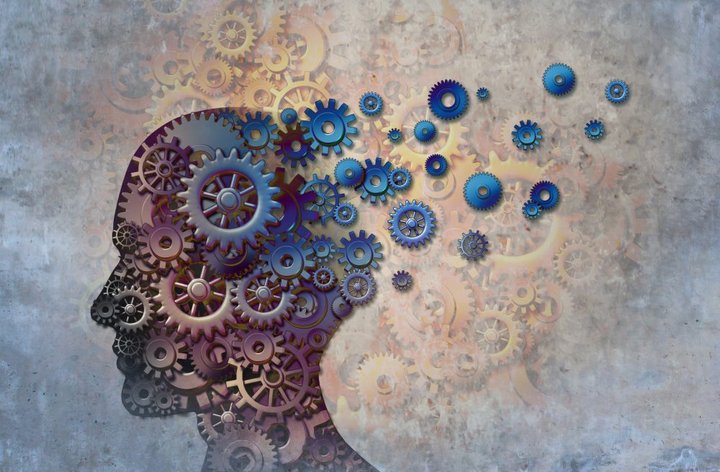
A physician, an advocate, a public health specialist, a suicide-attempt survivor and a California state lawmaker gathered in downtown Sacramento today to offer their diagnosis of the state’s mental health system.
The consensus was summed up by Sen. Jim Beall: “We need to start from scratch.”
“I haven’t heard a lot of cheerleaders for the status quo,” said Beall, a Democrat from San Jose and the author of several bills that would expand access to mental health treatment. But he said: “If you think the system works, you’re dead wrong.”
The panel discussion, hosted by CALmatters and the California Health Care Foundation, builds off an ongoing CALmatters reporting project by Jocelyn Wiener and Byrhonda Lyons on the state’s fragmented, sometimes fatally dysfunctional mental health system.
Who are falling through the cracks? What is the state doing right? And where can policymakers improve?
Wiener put those questions to the panel, and then asked them to share solutions. Despite their array of professional and personal backgrounds, everyone agreed that the state is repeatedly failing to ensure quality care to those who suffer from mental illness.
Kelechi Ubozoh, the co-author of the book, “We’ve Been Too Patient,” spoke from personal experience as someone who attempted suicide in the past and was involuntarily hospitalized.
“The mental health system keeps doing the same thing over and over again expecting a different result,” she said. “Which, unfortunately, as we all know, is the definition of a very stigmatizing word called ‘crazy.’”
Ubozoh, peer and community engagement manager at the California Mental Health Services Authority, said the system prioritizes crisis treatment over early intervention, treats the criminal justice system as a provider of first resort and ignores the voices of those who experienced the system first-hand.
Those who “are in the system” and their families “have a lot of feedback” and “should be included at every level,” she said.
“We have got to roll things back in our country to focus on people as human beings,” said Kerry Morrison, who spent two years studying different ways of providing mental health treatment to chronically homeless people as a fellow of the Los Angeles-based Durfee Foundation.
She pointed to Trieste, Italy, where the public mental health system is recognized by the World Health Organization as the gold standard.
“The police are never the first responders,” Morrison said. “They are the last person you would call into a crisis situation. You would call in peers or psychologists.”
Other panelists said that the source of the problem is a lack of leadership — and the difficulty of coordinating programs in 58 counties.
“It’s like trying to play the piano with 58 fingers,” said Thomas Insel, a neuroscientist and former director of the National Institutes of Mental Health, who currently is president of Mindstrong Health. He said the state ought to adopt concrete statewide goals, such as reducing the total number of suicides by a target percentage, or cutting the share of mentally ill Californians behind bars by a certain year.
“What is the state trying to accomplish?” he said. “You can’t manage what you don’t measure.”
“We need a top-notch mental health czar,” said Beall. “We need Governor Newsom to continue to be a leader — and maybe to be a profound leader, possibly — and not get diverted and not get drawn down by the inertia that exists.”
Newsom made expanding access to mental health services and improving the quality of treatment key components of his election campaign.
“Only 24 counties out of 58 have any comprehensive mental health services,” Newsom told CALmatters during the campaign. He said he would “focus on screening, on prevention, intervention,” rather than criminalization.
Since inauguration day, the governor has proposed a budget that includes $500 million for supportive housing for homeless Californians with mental illness and $100 million for county-run “whole person care” program, along with $150 million to train mental health professionals.
But the problem is not simply a lack of funding, but where the money goes, said Alex Briscoe, former director of the Alameda County Health Care Services Agency and now principal at California Children’s Trust.
“If you think of mental health only as a response to pathology, you get what we’ve got,” he said. A mental health system that prioritizes early intervention might direct resources towards screening at public schools, after-school programs and even prenatal care — “and the system currently doesn’t pay for those….There is no Medicaid reimbursement system more complex, more arcane and less aligned with best practices than behavioral health.”
The timing of the panel gave Sen. Beall an opportunity to vent. Last week, both chambers of the Legislature churned through hundreds of bills in a bonanza of procedural votes in which a majority were quietly shelved. One of those casualties was Beall’s SB 11 — his fourth unsuccessful attempt to add new guarantees that health insurers meet their legal obligation to offer equivalent standards of care for physical and mental illnesses.
“My own colleagues killed the bill,” he said. “The Democrats have to have a message, if they’re going to be in charge of this state, that mental health has to be a priority.”
###
CALmatters.org is a nonprofit, nonpartisan media venture explaining California policies and politics. Explore the project Breakdown: Mental Health in California
CLICK TO MANAGE